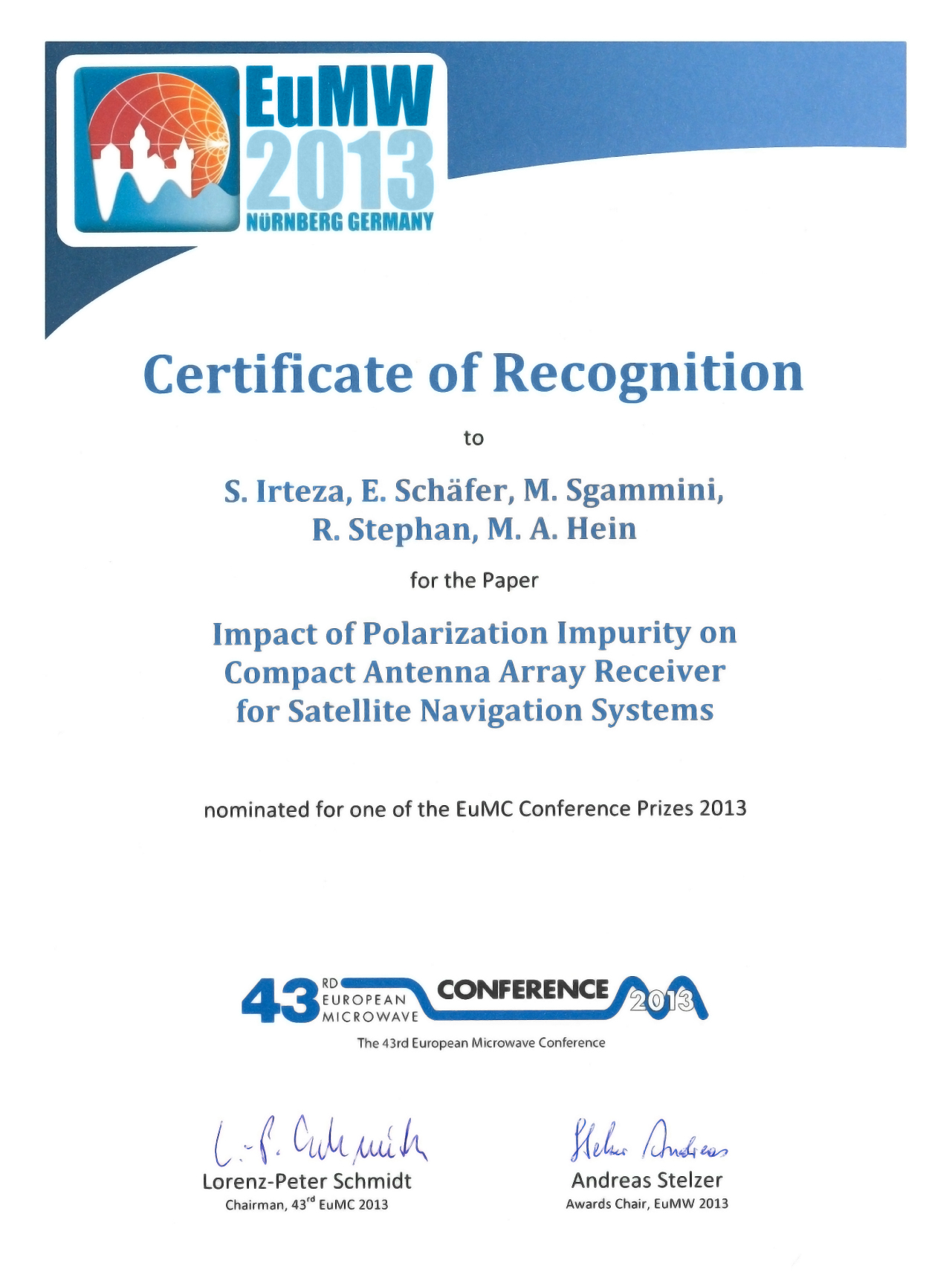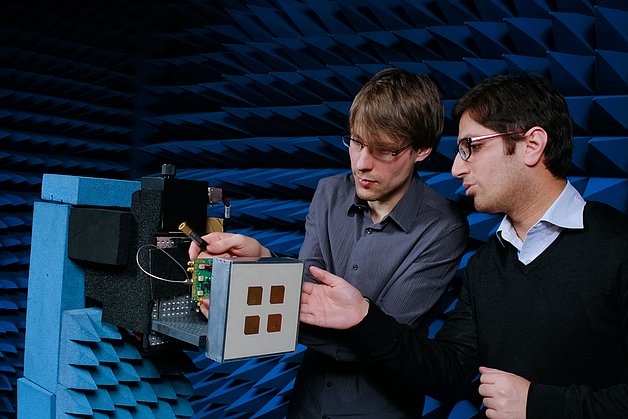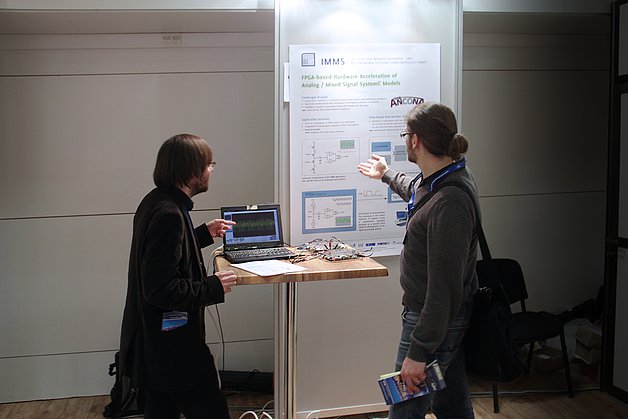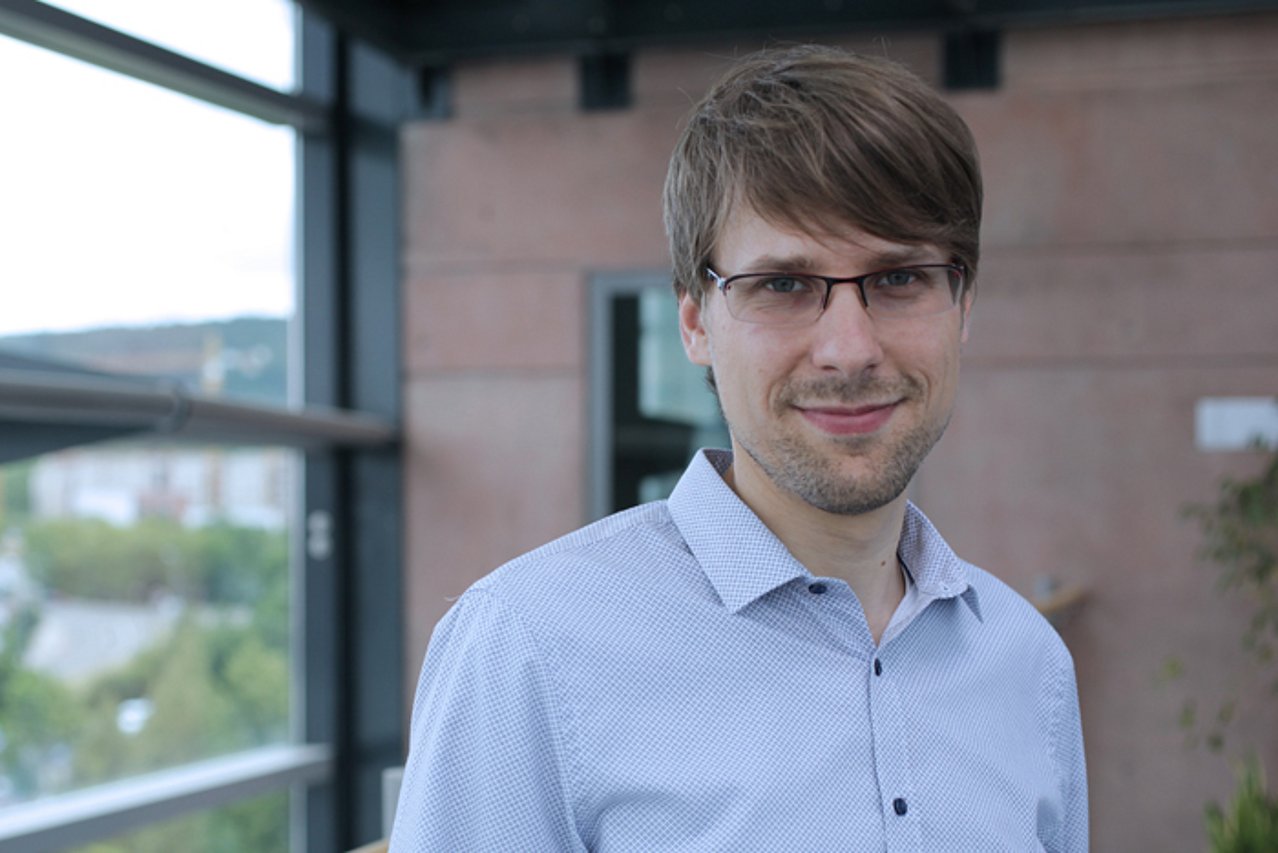Nominierung für einen Best Paper Award mit dem Beitrag: Impact of Polarization Impurity on Compact Antenna Array Receiver for Satellite Navigation Systems

43rd European Microwave Conference, EuMC, Nürnberg
Related content

Project
KOMPASSION
In the project compact solutions for interference-free and thus reliable satellite navigation have been developed.
A Four-Channel GNSS Front-End IC for a Compact Interference- and Jamming-Robust Multi-Antenna Galileo/GPS Receiver
Eric Schäfer1. Safwat Irteza2. André Jäger1. Björn Bieske1. André Richter1. Muhammad Abdullah Khan1,3. Muralikrishna Sathyamurthy1. Sebastian Kerkmann1. Alexander Rolapp1. Eckhard Hennig1. Ralf Sommer1.7th ESA Workshop on Satellite Navigation Technologies & European Workshop on GNSS Signals and Signal Processing (NAVITEC 2014), Session B6 - Robust GNSS Receiver Design, ISBN: 978-1-4799-6529-8, Noordwijk, Niederlande
1IMMS Institut für Mikroelektronik- und Mechatronik-Systeme gemeinnützige GmbH, Ilmenau, Germany. 2RF and Microwave Research Laboratory, Ilmenau University of Technology, Ilmenau, Germany. 3now with RWTH Aachen University, Aachen, Germany.Impact of Polarization Impurity on Compact Antenna Array Receiver for Satellite Navigation Systems
Safwat Irteza1. Eric Schäfer2. Matteo Sgammini3. Ralf Stephan1. Matthias A. Hein1.in 43rd European Microwave Conference (EuMC), Nuremberg, Germany, Oct. 2013, pp. 346-349, ISBN 978-2-87487-031-6
1RF and Microwave Laboratory University of Technology Ilmenau. 2IMMS Institut für Mikroelektronik- und Mechatronik-Systeme gemeinnützige GmbH, Ilmenau. 3German Aerospace Center (DLR) Institute for Communication and Navigation.ArticleFour-Element Compact Planar Antenna Array with Integrated Decoupling and Matching Network for Robust Satellite Navigation Systems
Safwat Irteza1. Eric Schäfer2. Matteo Sgammini3. Ralf Stephan1. Matthias A. Hein1.in 6th European Conference on Antennas and Propagation (EuCAP), Gothenburg, Sweden, Apr. 2013, pp. 21-25, ISBN 978-88-907018-3-2
1RF and Microwave Laboratory, University of Technology Ilmenau. 2IMMS Institut für Mikroelektronik- und Mechatronik-Systeme gemeinnützige GmbH, Ilmenau. 3German Aerospace Center (DLR), Institute for Communication and Navigation.ArticleNoise Characterization of a Multi-Channel Receiver Using s Small Antenna Array with Full Diversity for Robust Sattelite Navigation
Safwat Irteza1. Eric Schäfer2. Christian Vollmer2. Matteo Sgammini3. Ralf Stephan1. Eckhard Hennig2. Matthias A. Hein1.Wireless Information Technology and Systems (ICWITS), 2012 IEEE International Conference on, DOI: 10.1109/ICWITS.2012.6417676, IEEE Xplore Digital Library, ieeexplore.ieee.org/Xplore/, Page(s): 1-4
1RF and Microwave Laboratory, University of Technology Ilmenau, Germany. 2IMMS Institut für Mikroelektronik- und Mechatronik-Systeme gemeinnützige GmbH, Ilmenau. 3German Aerospace Center (DLR), Institute for Communication and Navigation, Germany.Article

Press release,
Best paper nomination at the European Microwave Conference 2013
Nürnberg/Ilmenau, 16/10/2013. At the European Microwave Conference 2013 in Nürnberg, Germany, the presented work on the „Impact of Polarization Impurity on Compact Antenna Array Receiver for Satellite Navigation Systems“ was nominated for the Best Paper Award. The topic was part of the three-year research project “KOMPASSION”, which ended on 30/09/2013.
Project
In this project, the German Aerospace Centre, Ilmenau University of Technology, RWTH Aachen, and IMMS were working on new designs,…

Event,
2015 Workshop on RFI Threats to GNSS
30 Sep 2015, Session 4, Aldenhoven: Live demo of a compact adaptive terminal antenna for interference-free satellite navigation developed in the KOMPASSION project
Contact
Contact
Eric Schäfer, M. Sc.
Head of Microelectronics / Branch Office Erfurt
eric.schaefer(at)imms.de+49 (0) 361 663 25 35
Eric Schäfer and his team research Integrated sensor systems, especially CMOS-based biosensors, ULP sensor systems and AI-based design and test automation. The results are being incorporated into research on the lead applications Sensor systems for in-vitro diagnostics and RFID sensor technology. It will assist you with services for the development of Integrated circuits and with IC design methods.


